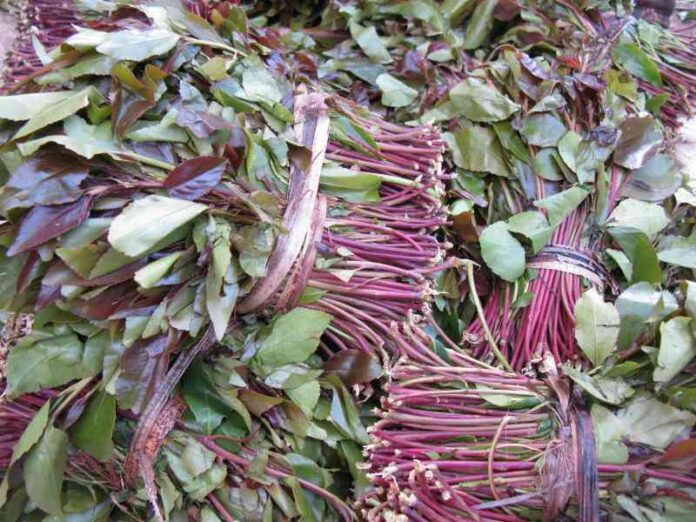Kenya has officially begun exploring the opening of the Djibouti market to Kenyan miraa (khat), a move seen as vital to reviving export revenues after the diplomatic fallout that closed off the once-lucrative Somalia market.
Trade and industry authorities, together with Meru County leadership and trader associations, are working to secure regulatory approvals that would allow daily exports of up to 20 tonnes roughly half the daily volumes previously sold to Somalia before its closure three years ago.
The Industrialization, Trade and Enterprise Development ministry recently confirmed that Djibouti’s trade minister is expected to lead a delegation to Nairobi to finalise import terms for khat.
The delegation’s visit follows two prior failed attempts in August and February, which were delayed by logistical hiccups and alleged external influences.
Meru’s governors and trade associations emphasize that Djibouti remains eager to diversify beyond its dependence on Ethiopian supplies, which have so far been insufficient to meet domestic demand.
Nyambene Miraa Traders Association (Nyamita) has urged inclusion in bilateral discussions, arguing that members possess vital experience navigating Djibouti’s market preferences and regulatory environment.
Its chairperson, Miriti Ngozi, stressed that engaging experienced traders is essential given the intricate legal and cultural complexities around khat trade in Djibouti, where the substance is legal yet culturally bound.
Kimathi Munjuri, Nyamita’s chairman, highlighted that while Kenya can target 20 tonnes daily exports, actual uptake hinges on securing contracts something Djibouti’s trade officials have indicated interest in facilitating.
Kenyan miraa exporters are under pressure as the Somali market, which once absorbed over 50 tonnes daily and generated Sh1 billion in exports over three weeks in 2022, remains unstable amid political tensions and restrictive quotas favoring Ethiopian growers.
The disruption of that market triggered sharp revenue losses for farmers in Meru, Embu, Kirinyaga and Tharaka Nithi and compelled Kenya to search for alternatives including Mozambique, DRC and Israel though Djibouti currently offers the most immediate opportunity.
Kenya’s Miraa Taskforce Report implementation committee has been dispatched to benchmark with Ethiopian exporters and other trading partners to refine supply quality and regulatory compliance ahead of expansion.
While Kenyan varieties are considered superior to Ethiopian produce, traders must meet Djibouti’s handling, sanitary and inspection standards in order to establish sustainable contracts.
The development is being watched closely. Should the Djibouti route succeed, it would not only provide a critical outlet for Kenyan miraa but also restore hope for growers and traders hit hardest by the closure of the Somali market.
However, missing timelines or regulatory delays could further damage trust and profitability in the miraa sector.
Stakeholders emphasize that strong coordination between national government agencies, Meru County, and trading associations will be essential to unlock and sustain this emerging market opportunity.
Written By Ian Maleve










![[Full List] – Safaricom, Absa and Britam Named Among Top Employers for 2026](https://uzalendonews.co.ke/wp-content/uploads/2026/01/Screenshot-2026-01-15-190157-218x150.png)








